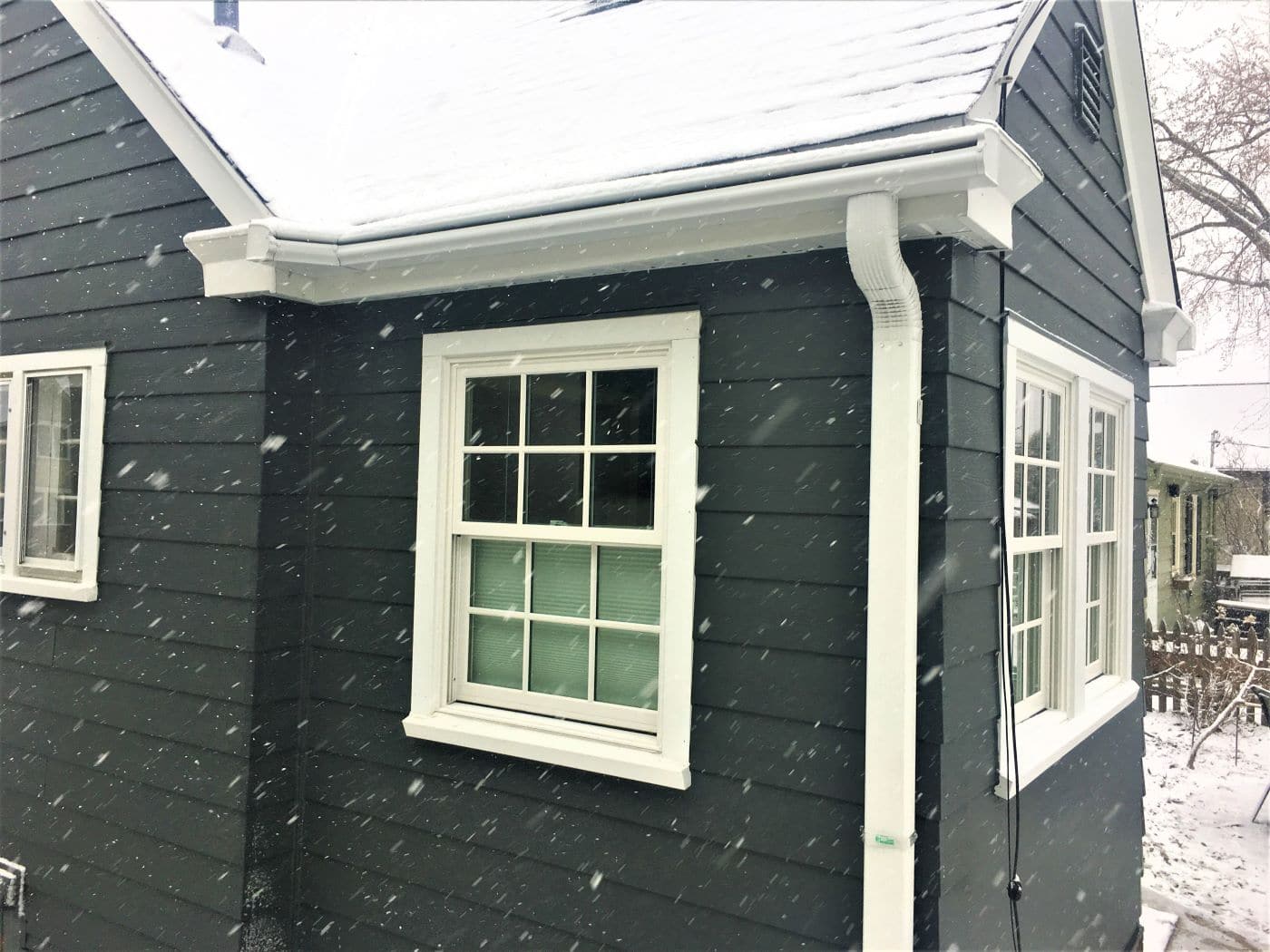Can an Asphalt Roof Be Installed in the Winter?
In our industry, the busiest times for roofing installation are first thing in the spring and in the fall. Those in the spring may have prolonged the project longer than they should have and those in the fall likely are trying to get the project completed before the cold sets in. While we certainly don’t see an influx of roofing inquiries in the winter, the question has been asked whether roofing can be installed in the winter. The answer, in one word, is yes. However, we feel a longer explanation is necessary so that the homeowner understands the ins and outs of installing a roof in the winter.

First Things, First
Just because you can, doesn’t mean you should. By no means are we encouraging everyone to get a roof installed year-round in the Midwest. A new roof in the winter involves some additional challenges. The temperature needs to be taken into consideration because at extremely cold temperatures, asphalt shingles can become brittle and break. To avoid this issue, a roofer can keep most bundles of shingles in a warm, dry place and only pull out a few bundles at a time. Because days are shorter in the winter, roofers have less daylight to get the roof complete. Installing on a windy winter day can easily rip off newly installed shingles, especially those with self-sealing strips which can be compromised in cold temperatures. As an extra precaution, hand tabbing (adding quarter size spots of adhesive to the bottom of shingles) is encouraged. This will keep the shingles in place until warmer temperatures arrive which will help the adhesive work. It’s also important to keep in mind the safety of the roofers since the roof can be a slippery surface to work on in the winter. As with any roofing job, it’s important that roofers are tethered to the roof so that if they were to slip, they would be stopped before they went over the edge.
See Our Roof Installers in Action:
It’s Not All Bad News
On the bright side, there are a few advantages to roofing in the winter, should you find yourself in need. In the winter, unlike the summer, meteorologists have an easier time forecasting the weather. This allows roofers to make strategic choices about when to install a roof so that it’s not left open when snow is on the way. One of the hazards of roofing in the summer is worrying about debris accidentally falling on your landscaping and damaging your plants. In the winter, there’s less chance for damaging landscaping. Windows are also closed in the winter which prevents any falling roofing materials from accidentally ending up in your home.
The Bottom Line
While winter isn’t an ideal time to install a roof, with the proper steps taken to ensure the workers’ safety and preservation of the new roofing materials, a roof can successfully be installed in the winter months.
